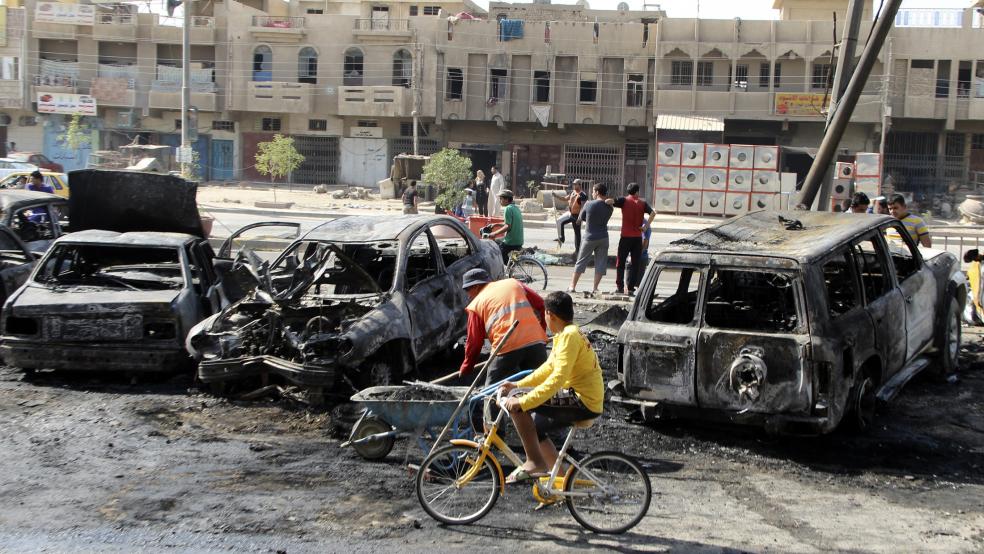A series of car bombs detonated across Iraq on Sunday, killing at least 66 people. It was the deadliest day since Oct. 5, when 75 people were killed in a similar series of attacks.
Yesterday’s attacks marked the continuation of a violent campaign by al-Qaeda affiliated groups in Iraq, which have made a fast comeback since the end of the Iraq war. So far, 5,300 people have been killed in Iraq this year. Last month alone, 880 people were killed; the Washington Post estimates that 20 to 30 percent of the dead are children.
 Meanwhile, a roadside bomb in Afghanistan killed 18 people. The death total there has now reached 1,319 this year. An additional 2,533 have been wounded.
Meanwhile, a roadside bomb in Afghanistan killed 18 people. The death total there has now reached 1,319 this year. An additional 2,533 have been wounded.
Yet the divide between Afghanistan and the United States continues to grow. This weekend, reports emerged that American inspectors would be cut off from nearly all U.S.-funded projects across the country once Americans troops withdraw. It’s another sign of the quickly failing relationship between Washington and Afghan President Hamid Karzai.
Former Secretary of State Colin Powell once advised George W. Bush that if he invaded Iraq, the U.S. would be responsible for the country’s future. And while the war in Afghanistan isn’t parallel to the one in Iraq, the long-stated goal of the U.S. was to prevent Afghanistan from devolving into a place that could provide safe-haven to terrorists, as it was before the Sept. 11, 2001 attacks.
Post-war Iraq has been in shambles politically, socially and economically, and the instability contributes to wider uncertainty across the Middle East.
Iraqi officials are cognizant of the consequences of U.S. isolationism. Ahead of a conference this week in Washington, Iraqi ambassador Lukman Faily pleaded with the White House for additional assistance. "We need to increase the depth and width of our cooperation, to be more agile and reflect the seriousness of the situation in Iraq,” he said. “In our discussions, we will highlight the urgent need for the approval and quick delivery of military sales.”
In Afghanistan, the U.S. has tried and failed to repair the country. Development projects have languished and died on the vine. And it’s impossible to secure the country’s long-term security without cooperation from Karzai.
American officials involved in talks with the Afghan government have been downplaying the possibility of any deal. They recently said that many of Karzai’s demands were "something between frustrating and offensive."
America’s final withdrawal from Afghanistan will end nearly 15 years of continuous war. Events of the last year in each of these countries show that trillions spent fighting these wars might have been wasted, and the 6,775 American military lives taken in these conflicts might have been lost in vain.





